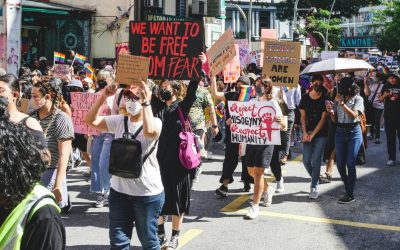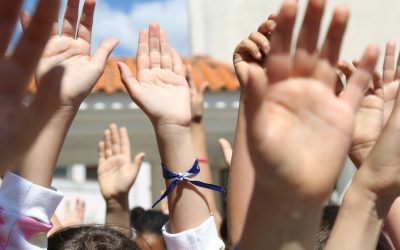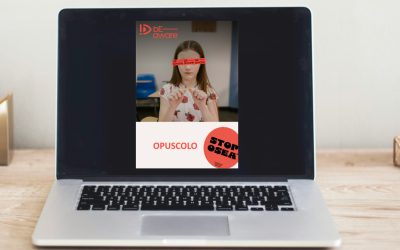Gender-based violence is a complex reality, rooted in stereotypes, power imbalances, and social norms that affect individuals and communities across the board. Tackling it requires not only concrete tools but also awareness, listening, and dialogue. With this aim, the Memory Library was created — a collection of testimonies from professionals and experts promoted by the WeLENS YouTube channel, part of the European project of the same name. Among the most significant contributions, CESIE has produced five interviews that offer diverse yet complementary perspectives on the phenomenon, based on the direct experience of those working in the field.
The voice of young people
Opening the interview series is Virginia D’Arrigo, a member of the Youth Advisory Board, a CESIE initiative that involves young people in European projects focused on mobility and active citizenship. Virginia reflects on the need for spaces for dialogue and appropriate educational tools, so that young people can recognize and deconstruct violent dynamics that are often normalized. Overcoming generational and social barriers becomes essential to fostering authentic dialogue and actively involving schools and adults in the process of change.
Comprehensive Sexuality Education as prevention…
Gea di Bella, sexual rights advocate, emphasizes the importance of comprehensive sexuality education (CSE). She highlights how CSE is essential in preventing abuse and fostering healthy, consensual relationships — not just among peers but also across generations. CSE goes beyond the sexual sphere, encompassing emotional and interpersonal relationships in all their forms.
… and as a transformation tool
Giada Saguto, a sexuality educator, builds on this perspective by framing CSE as a true tool for social transformation. Promoting a culture of consent, breaking down gender stereotypes, and encouraging mutual respect are key actions for building healthy relationships — whether social, romantic, generational, or institutional — based on equity. Giada also stresses the importance of providing holistic and informed support services that address the needs of survivors in a respectful and multisectoral way.
Cultural mediation as a bridge
Francesca Tilotta, a cultural mediator, speaks about the delicate work of linguistic and cultural mediation during initial contacts with women who have survived violence. Her insights highlight the essential role of an intercultural approach in ensuring listening, safety, and access to services. Mediation goes beyond simple language translation; it addresses cultural barriers as well, creating a bridge between different worlds while respecting each person’s specific context.
Responsibility and justice
Concluding the series is Giulia Perrone, a criminologist and legal expert, who offers a deep analysis of how perpetrators are treated and how social narratives shape public perception and judicial outcomes. Giulia encourages reflection on how the system can (and must) assume responsibility even toward those who commit violence, avoiding justifications or distorted narratives. At the same time, she underscores the need to promote individual accountability, while taking into account the social complexity in which such behaviors develop.
The five interviews curated by CESIE for the WeLens Memory Library form a mosaic of skills, experiences, and sensitivities. Each one enriches the dialogue and offers practical insights to rethink the approach to gender-based violence from a preventive, educational, and systemic perspective.
Watch the interviews on the WeLens YouTube channel and discover how shared knowledge can become a tool for change:https://www.youtube.com/@WeLensProject
About WeLENS
WeLENS – Educational practices through a gender lens aims at combating gender based violence through information and storytelling, involving organisations from Italy, France, Greece, Martinique and Argentina. The project is funded by Erasmus+, Key Action 2, Cooperation partnerships in adult education.
Partners
- DADA – D’Antilles et D’Ailleurs (Martinique, coordinator)
- CESIE ETS (Italy)
- FemLENS (Estonia)
- NO GAP (Italy)
- Elan interculturel (France)
- KEMEA – KEntro MEleton Asfaleias (Greece)
- WAD – Women Across Differences (Guyana)
- MVT – Asociacion madres de constitucion para fomentar la seguridad y el bienestar de los habitantes (Argentina)
- CUVT – Comision Unidos vs Trata (Mexico)
- Beecom (Italy)
For further information
Contact Ludovica Leotti, ludovica.leotti@cesie.org









